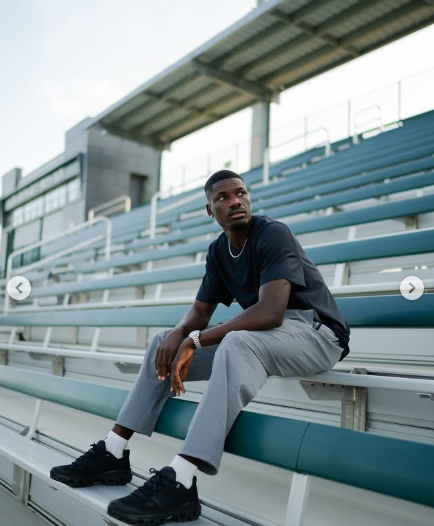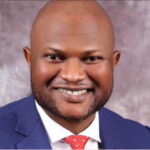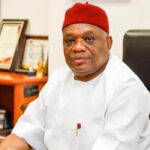Three Nigerian athletes have been tipped to become champions at the NCAA Championships, which if right, will be the most in Nigerian history.
At least three Nigerian athletes have been predicted to become champions in their respective events at the NCAA Championships in Oregon, scheduled to take place from Wednesday, June 11 to Saturday, June 15.
The championship which is the most prestigious track and field competition in the US college circuit, will showcase the best student-athletes competing for their schools, with the primary goal of becoming NCAA champions or earning points that will help their school win the overall title.
)
Tina Clayton won the women’s 100m event at the Racers Grand Prix clocking a Season’s Best of 10.98s.
This year, 20 talented rising stars qualified for the NCAA Championships from their regionals, but 3 have been predicted to become champions, and if right, will be the most in Nigerian history.
NCAA analyst and journalist, Stan Becton, did event-by-event predictions for the most competitive collegiate track and field event in the World, and here’s what he had to say about these Nigerian athletes.
Tima Godbless
The Lousiana State University (LSU) sophomore has been predicted to become the first Nigerian since Blessing Okagbare in 2010 to win the women’s 100m event.
)
Tima Godbless has the fastest time in the NCAA and second-fastest time in the world
Godbless, who stormed to 10.91s at the NCAA regionals is currently the fastest in the women’s field and her time is also the world No.2.
“Simply making the final in the women’s 100 meters will be a difficult task. Predicting a winner here is no easy choice — and my pick could miss the final. However, I’m going with Tima Godbless after the LSU Tiger ran 10.91 in the East first round.
)
World champion Sha’Carri Richardson criticized the prevalence of culture pleasers who act as if they know God.
“Godbless has progressed with every meet this season, going from 11.20 in March to 11.14 in April to 11.06 at SEC championships to 10.9,’ wrote Becton.
Samuel Ogazi
Another sophomore from the University of Alabama, Samuel Ogazi will aim to turn his 400m silver medal on his debut last year to gold this time around.
)
Samuel Ogazi became Nigeria’s first 400m Olympic finalist in 36 years at the Paris Games
‘My pick from a loaded 400m group came down to who I think is most likely to run sub-45s on the championship stage. Samuel Ogazi has run sub-45s twice this year (plus another 45.04s race) and ran 44.52s at last year’s championships. Even last year, Ogazi ran sub-45 twice before Eugene, proving he can run fast even with a lengthy season,’ Becton wrote on the NCAA website.
)
World’s fastest man Noah Lyles opened up on the specific reasons for not signing up for Michael Johnson’s Grand Slam Track League this year, citing financial and marketing values, while still open to come on board next year.
If Ogazi wins the title, he will become the second Nigerian after Clement Chukwu (1999) to win the men’s 400m gold at the NCAA Championships.
Ezekiel Nathaniel
After three unsuccessful attempts at becoming NCAA champion, Baylor University’s standout senior is the outright favourite for the men’s 400mH title this season, as he’s undefeated in all his individual races.
)
Ezekiel Nathaniel is the best 400m hurdler in the NCAA
His outstanding personal best of 47.89s is a new Nigerian Record, No.3 in the World this season, No.7 in NCAA history, and he’s gone sub-48s twice this year.
“Nathaniel Ezekiel is the only male to break 48 seconds in the 400 hurdles this season. He’s also only running the 400mH individually at championships, scratching from the 400 open where he could’ve been eligible based on his regular season. That singular event focus should drive him to a championship,” said Becton.
)
Sprint legends Tyson Gay and Usain Bolt had intense rivalry during their active years. But how much did it affect the American being No2 to the world’s fastest man in history?
If Nathaniel is successful in winning the NCAA title, he will become the second Nigerian since Miles Ukaoma in 2014.










